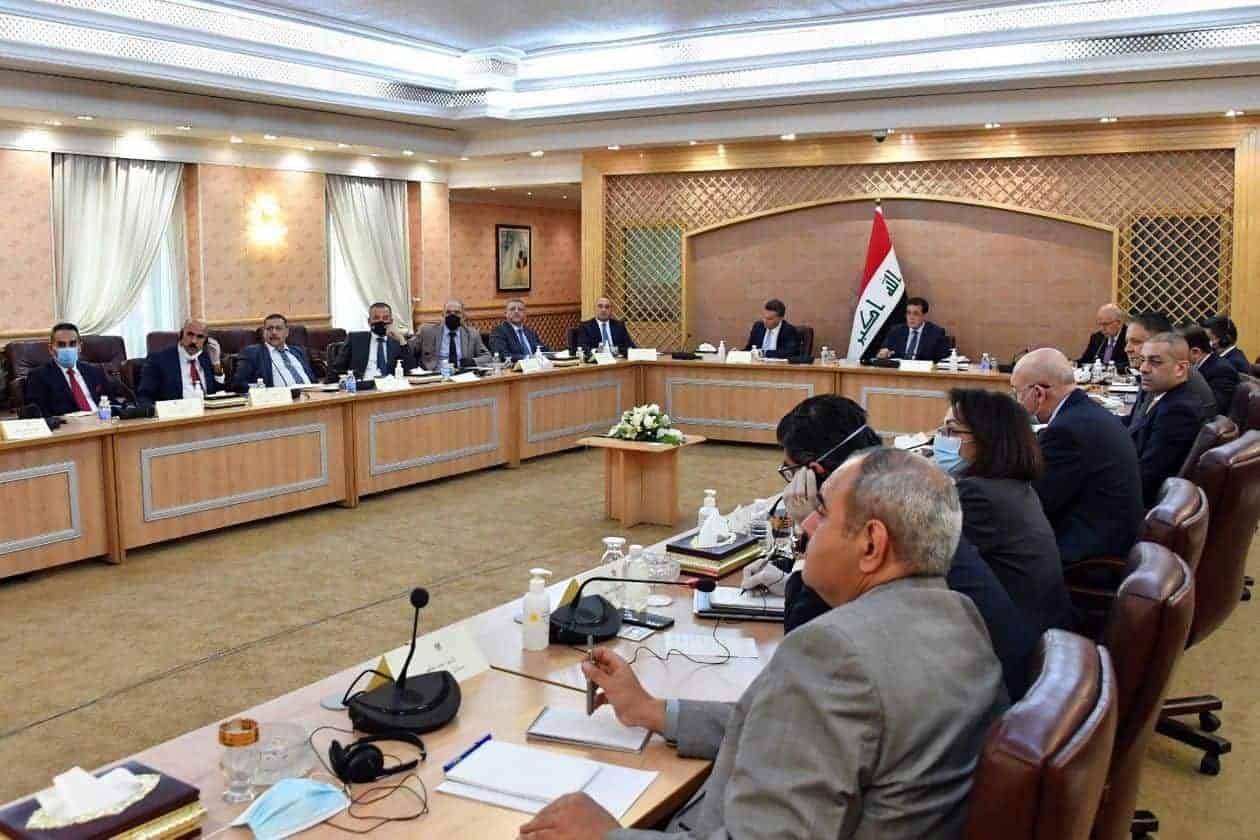Rockets Fired Into Baghdad Airport Complex Used by U.S.-Led Coalition

Rockets landed inside the Iraqi capital’s airport complex in the early hours of Tuesday, the latest in a spate of recent attacks on facilities hosting U.S. personnel that threaten to undermine efforts to mend frayed ties between Washington and Baghdad.
Three rockets landed near a guesthouse within the perimeter of the airport, where the U.S.-led coalition has a presence, but caused no damage, Iraqi security officials said. In the past week, rockets were also fired at an Iraqi base near Baghdad where American troops are based, and near the U.S. Embassy in the capital.
No one has yet claimed responsibility for the attacks. Iran-backed factions in Iraq were blamed by the U.S. for dozens of rocket attacks on facilities used by American personnel last year, prompting American airstrikes in response after U.S. casualties. The U.S. in January also killed a top Iranian general it accused of orchestrating the attacks.
The latest uptick in rocket attacks, after a monthslong pause, comes as Washington and Baghdad embark on a strategic dialogue over the terms of their relationship—which broke down after the killing of Iranian Maj. Gen Qassem Soleimani on Iraqi soil.
They pose a test for Iraq’s new prime minister, Mustafa al-Kadhimi, as he grapples with an economic crisis brought on by the collapse in oil prices.
The U.S. expects Mr. Kadhimi to take action against Iran-backed groups it blames for rocket attacks targeting American troops in Iraq. But the former intelligence chief has a fine line to walk between responding to U.S. demands and not antagonizing Iran.
An escalation in attacks or casualties among American forces risks provoking a response from the U.S. against Iran’s surrogates, turning Iraq into a battleground between its rival allies.
Iraqi military spokesman Brig. Gen. Tahsin al-Khafaji said Tuesday that committees had been formed to identify the perpetrators of the latest attack.
An official close to Mr. Kadhimi said Iran-backed groups were irked by closer cooperation between Iraq and the U.S. since Mr. Kadhimi took office and were seeking to undermine the new prime minister’s authority.
“They are fearful of the measures taken by this government to restrict their influence,” the official said on condition of anonymity. Among those measures is the appointment of military commanders who are taking a harder line toward Iran-backed groups.
Assistant Secretary of State for Near Eastern Affairs David Schenker said on Friday that Baghdad had renewed its commitment to protect U.S. forces during the opening session of the strategic dialogue last week.
“We want to help Iraq in the ultimate defeat of ISIS [Islamic State] and bringing stability to Iraq, but Iran-backed groups are working against us in that mission,” Mr. Schenker said.
The two sides agreed that the U.S. would reduce troop levels in the coming months and discuss the status of remaining forces, according to a joint statement after the first session of the dialogue.
The U.S., facing increased threats from Iran-backed militias, has already downsized its footprint this year.
Islamic State has sought to take advantage by increasing attacks against Iraqi security forces. The group no longer controls any territory in Syria or Iraq but is waging an insurgency.
The strategic dialogue is due to resume next month. Iraq is hoping the U.S. will help it unlock international support for its economy, which has been battered by the fall in oil prices. Mr. Kadhimi’s efforts to pare back a bloated public-wage bill are facing resistance from Parliament and protesters.
In the months since the killing of Gen. Soleimani, several new groups have emerged, threatening U.S. troops and claiming responsibility for attacks. Iraqi politicians and analysts say they are splinters of established Iran-backed groups.
Iraqi security forces last week said they had thwarted another planned attack on U.S. troops north of Baghdad. They intercepted a vehicle with a mounted rocket launcher and found information pointing to the perpetrators. It didn’t reveal who they were.
An Iraqi official said the latest attacks were the work of Iran-backed factions disgruntled by efforts to normalize relations with Washington. The official said there was a risk the U.S. would retaliate if the attacks led to any casualties.
Photo: Iraqi officials attended an initial session of a strategic dialogue between Iraq and the U.S. via videoconference in Baghdad on Friday. - XINHUA/ZUMA PRESS




